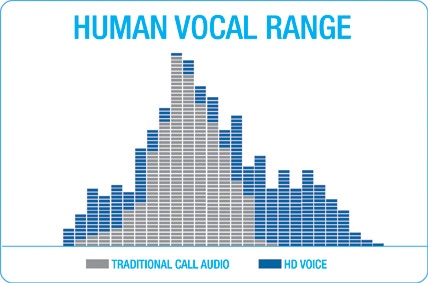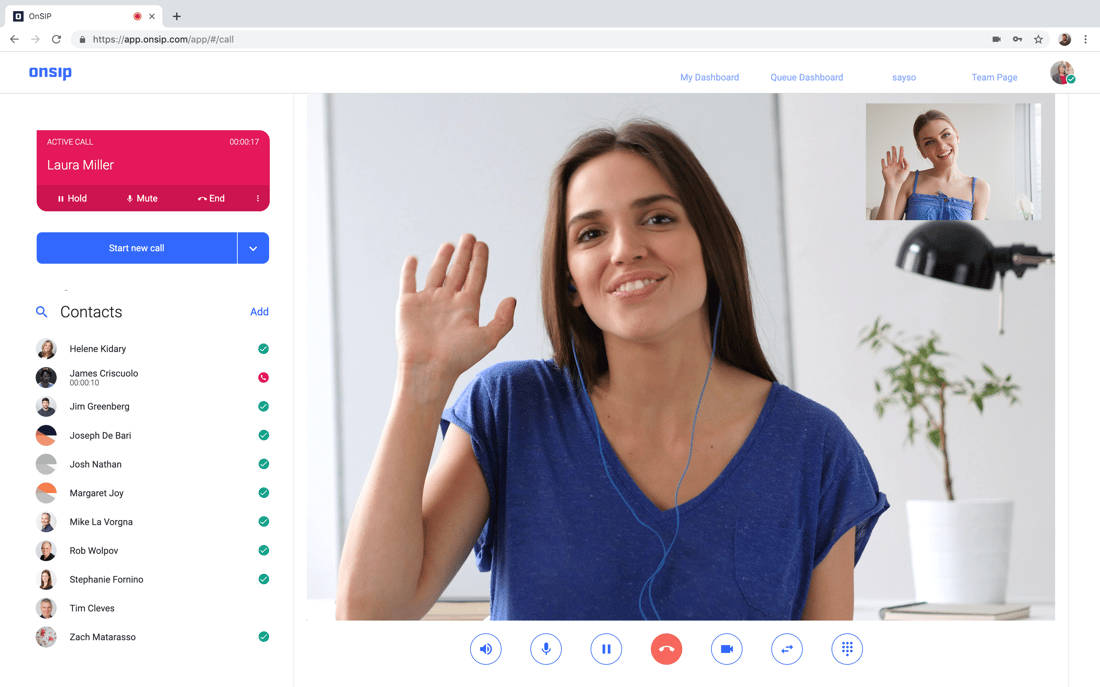Webphones come in all forms nowadays, and companies are always stretching the boundaries of what these web-based softphones can do. Many webphones are versatile, but there are a few features that can actually turn your browser into a mobile call center.
Mobile call centers are ideal for remote workers or organizations looking to cut the cord. Here are seven features that can turn your Internet browser into a mobile call center.
1. Standard Deskphone Features
The best webphones essentially replace deskphones. These webphones offer all the basic functional features of a phone - conferencing, holding, transfering, mute, voicemail - that allow them to replace a standard business phone. This means your call center employees can ditch their deskphones for fully functioning browser alternatives.
2. HD Voice

Just because you're communicating on a webphone doesn't mean you shouldn't be able to have superior voice quality on your calls. Choose a webphone that's HD Voice ready - one that implements a high quality codec such as G.722 or Opus. This will allow your call center team to communicate clearly and easily with callers.
HD Voice not only encapsulates the entire range of the landline voice spectrum - it doubles the frequencies callers can hear. Callers on landline phones can hear about 3.5 kHz of the human vocal range, whereas callers on HD Voice phones can hear up to 7 kHz. Check out our blog on HD Voice call quality for a more in-depth comparison.
3. Video Calls

Webphones hold a distinct advantage over deskphones when it comes to video calls, because most desktops, tablets, and smartphones come with cameras. By harnessing hardware most consumers have, webphones can stream video calls without requiring expensive video phones. This lets your call center team interact with customers in a visual dimension, making demonstrations and examples easier.
4. Enhanced Queues
Enhanced Queues with Call Monitoring, Call Whisper, and Call Barge allow supervisors to monitor call center agents and customers alike. Enhanced Queues can also generate valuable analytics and call tracking metrics via reports. These Queues let you to stay on top of your call center staff and give you key reporting tools.
5. CRM Integration
Integration with platforms such as Odoo or Zendesk allows webphones to roll your calling operation and your CRM data into a single interface. Incoming calls can be received by the webphone, and numbers can be matched with existing customer information, arming your employees with key information before they even answer the phone. This allows your call center employees to close deals more effectively and assist customers faster.
6. Click-to-Call

Click-to-call streamlines the sales and support processes. Webphones that can call numbers simply by clicking on them save your employees time and increase efficiency. The feature keeps your call center agents moving forward without requiring them to stop and actually dial phone numbers. And it helps customers, too, because they can reach you quicker.
7. No Add-Ons
With technologies such as WebRTC, you do not have to install additional software to get your webphone running. Some webphones use capabilities that are already built into the browser itself. This is just another plus for your call center staff, because less software means less maintenance, and more saved time.WebRTC updates are included in any supported browser releases, so users also don’t have to separately download updated versions of the latest technology.
Now your office can become a fully-equipped mobile call center with these cool webphone features. Also, check out our Top 6 Webphones post to help you choose an option.

